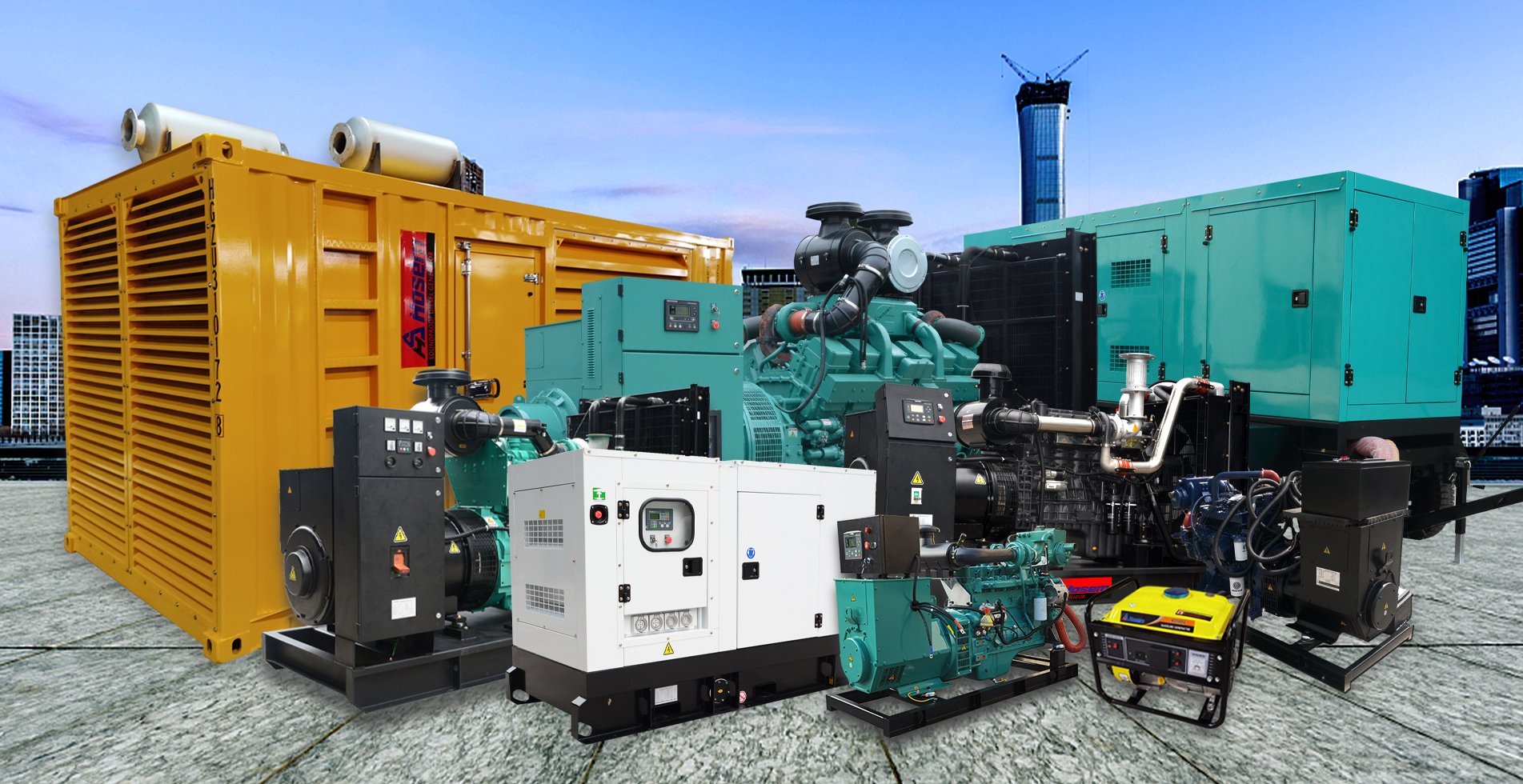When your establishment requires a new generator, you may have a few choices regarding the fuel source. Diesel generators are a popular choice because of their many advantages. They may be utilized for various purposes, including events, boats, construction, telecommunication towers, and emergencies. Industrial diesel generators guarantee the continuous power supply to vital industry applications. They are the preferred technology because they are readily available, inexpensive, have a fast start-up time, and are compatible with diesel.
However, any company owner should know that diesel generators also have disadvantages. We will look at the benefits and drawbacks of utilizing an industrial diesel generator so that you can make an informed decision.
Pros
Superior power output
Diesel generators can manage higher power loads than other types of generators. They also have a longer power output lifespan. Diesel generators are, therefore, perfect for places without or with erratic off-grid power backups.
Constant supply of electricity
A well-maintained diesel generator is exceptionally dependable and sustains your vital power systems for extended periods during a blackout. For instance, pump experts at www.garpen.com.au suggest using diesel generators as a power backup for well pumps. Having a diesel generator for power backup helps you minimize downtime and prevent severe financial losses for your facility while you wait for the electricity to come back on.
Safety
Gas generators take more fuel to operate than diesel generators do. This implies that a gasoline generator will likely require more fueling than a diesel generator, and you may need to store some to avoid inconveniences. In addition to increasing your expenses, frequent refilling exposes you to highly combustible gasoline. Consequently, the likelihood of fire incidents is considerable.
Diesel generators, on the other hand, use less fuel to run longer. In addition, they use less combustible fuel than generators that run on gasoline. You can relax knowing that there is a far lower likelihood of fire incidents when you use a diesel generator.
Fuel efficiency
Fuel consumption is a crucial thing to consider when buying a generator. Although the initial cost of diesel generators is more expensive, they use less fuel to accomplish the same duty as other alternatives. Furthermore, these generators often use less fuel than gas generators while producing the same work. Even though diesel may be slightly more expensive than other fuel sources, its efficiency means you won’t need to fill it up as frequently, which ultimately saves you money.
Minimal maintenance
Maintenance is essential to maintain your generator operating at peak efficiency. Most manufacturers advise that you adhere to the generator’s recommended maintenance plan. Along with doing maintenance after a big weather event, you should do it anytime you suspect something is amiss with your generator. For instance, to avoid congestion, you should do maintenance following a storm.
Diesel generators require less maintenance than other alternatives. This is so because starting a diesel generator requires fewer parts. Unlike gasoline generators, diesel generators don’t need you to repair carburetors or change out spark plugs.
A longer lifespan
Diesel generators are more resilient in contrast to other options. These generators are strong and made to resist heavy usage. In addition to running colder than natural gas, diesel generators have a longer lifespan. Certain types have been reported to outlast equivalent gas-powered generators by three times. A diesel generator can last many years before requiring a significant overhaul if it receives regular maintenance. Nevertheless, proper maintenance and upkeep are essential to a diesel generator’s extended lifespan.
Versatility
Diesel generators are incredibly durable, require minimal maintenance, and are adaptable. Their extended operating duration and low fuel usage suit them in various settings, such as residences, businesses, and off-grid initiatives. Diesel generators are a common source of electricity for homes and workplaces.
Better resale value
Purchasing diesel generators provides you with an advantage in the resale market. But you must ensure your diesel generator operates well to upgrade or resell it. You might sell it for more money than you had planned. Because older diesel generators have longer lifespans, many buyers will pay more.
Cons
There are two sides to everything, and diesel generators are no exception. Notwithstanding the benefits previously mentioned, these diesel generators have the following disadvantages:
Noise-related pollution
Older and less expensive diesel generators make more noise than the modern models. Go to the site and check out the new models. Avoid diesel generators if you can’t put up with the noise. Alternatively, you can enclose it in a soundproofed room to reduce the noise levels.
Size
Diesel generators are larger and heavier than gasoline generators. These generators may be challenging to transport from one location to another since they include many parts and tanks. It might not be the best portable power choice unless you have careful planning for transferring your generator. Think about other options, especially if you move frequently. A diesel generator would be better if you don’t intend to move.
Emissions
One of their main disadvantages is that diesel generators emit harmful exhausts such as carbon dioxide, nitrogen oxide, particulate matter, and others into the atmosphere. A natural gas generator might be preferable for those worried about environmental sustainability because it burns cleaner than other fuels.
Price
Diesel generators are generally more expensive even if they don’t need constant maintenance and consume less fuel. Diesel generators may not be your best choice if you’re trying to save money on a generator. But, over time, you may discover that a diesel generator is more cost-effective than a gas-powered one because of how little it costs to operate and maintain.
In conclusion, diesel generators are dependable, robust, and long-lasting. They are also economical and efficient in terms of fueling. Their longer lifespan is why so many individuals have chosen to invest in them. Diesel generators may have some drawbacks, though. For instance, these generators are generally costly, challenging to install, and noisy (though some recent models make less noise). In either case, it is imperative that you thoroughly evaluate all the features of a diesel generator before making a decision.





